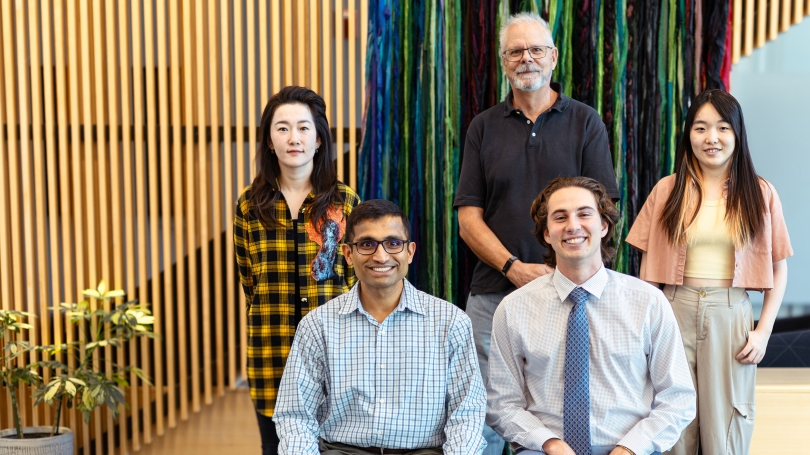In the summer of 2023, a fruitful journey began at Thayer, fueled by the passion and ingenuity of a dynamic team. Thayer PhD Candidates Lilly Yang and Siqi Ke, along with Vikrant Vaze, the Stata Family Career Development Associate Professor of Engineering, and Steven Peterson, Senior Lecturer at Thayer, embarked on an ambitious project. Their mission: to identify viable solutions for reliable access to sustainable energy in some of the world's most fragile states. Funded by an Irving Institute Seed grant for their project "Enabling the Transition to Renewable Energy in Fragile States," their two-year endeavor yielded many results and generated substantial momentum for future policy innovations.
Showcasing their progress to an international audience, Vaze presented their research on developing green energy infrastructure in conflict-affected regions of Africa, at the prestigious CERAWeek 2025 conference in Houston, Texas. Furthermore, their innovative approach—a hybrid renewable energy system model utilizing stochastic programming to plan long-term and operational strategies—was shared with faculty at an Irving Faculty Seminar in May 2025. The team's comprehensive framework for decision-making aims to foster energy stability and promote local economic growth, support entrepreneurship, and ultimately reduce conflict through improved access to sustainable energy in these vulnerable regions.
Central to the success of this project was its integration into relevant educational programs at Thayer. The research project enriched two undergraduate courses and one graduate course: System Dynamics in Policy Design and Analysis, Future of Energy Systems, and Energy Systems. This integration enabled students to engage directly with cutting-edge research with real-world applications.
The project captured the attention of Dartmouth's thought leaders and scholars. It was highlighted in an article published in Ethics and International Affairs by Victoria Holt, Director of the Dickey Center for International Understanding. Holt emphasized the project as a prime example of how "economic modeling could help conflict-affected countries served by peacekeeping missions consider how to use the UN missions as an anchor client or reliable buyer for renewable technology." This recognition demonstrates the applicability and potential impact of the team's work.
This October, PhD student Lilly Yang will continue to extend the reach of their work by presenting at the 2025 INFORMS Annual Meeting in Atlanta, Georgia. This exposure not only highlights the team's achievements but also positions their research at the forefront of discussions about Operations Research and Management Science.
The project also laid the groundwork for future opportunities. The team secured a follow-on grant from the Dickey Center for International Understanding to support a Thayer MS student. This young scholar, Ryan Proulx, who was inspired as an undergraduate by insights gained from the project—which were integrated into his "Future of Energy Systems" course—continues to contribute to the field. Additionally, the team is now working on a manuscript for an operations research journal that highlights their findings related to modeling and algorithmic developments, further extending their impact.
This initiative showcases the role of Irving Institute Faculty Seed Grants in fostering innovation, benefiting students, practitioners, and academics. It underscores Dartmouth's dedication to developing impactful energy solutions and addressing real-world challenges while empowering future leaders in global energy transitions. By supporting such projects, the Irving Institute not only aids the academic community but also has the potential to inform sustainable energy solutions for conflict-affected communities.


